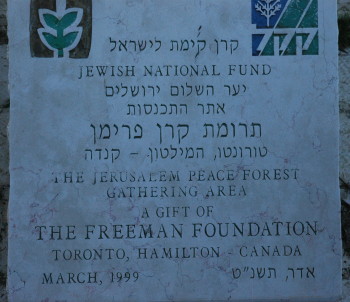Midnight repost: A visitor’s look at Israel
The tenth anniversary retrospective of Behind the Black continues: Almost my entire family now lives in Israel, or more precisely, in a variety of settlements in the West Bank. I thus periodically go there to visit, and when I do, I have almost always written one or more essays giving my perspective of the situation there in the West Bank, as seen up close and free from the distorted narratives of our bankrupt media.
The following links will take you to all these essays. I strongly recommend that you read them in order, especially because the first five came from my 2013 visit, and form as a group a deeper analysis. The last three, from 2014, 2017, and 2018, provide some more recent perspectives.
I am sure my readers will find themselves very surprised by what I have learned.

